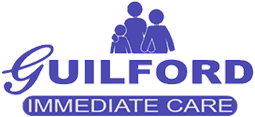Sunburn is horrible. It’s one of the most preventable yet common incidents for people of all ages. When you get sunburnt it feels horrible, looks bad, and can be a serious issue in the future. As we stated before, though, it’s totally preventable. If you want to get tan, that’s fine, but ample amounts of UV rays can be bad for your skin. Your skin is the largest organ of your body, and when it gets burnt by the sun it can affect it in the future. Copious amounts of sun exposure can cause skin conditions such as melanoma, moles, cancerous spots, and premature or excessive wrinkling. The good thing is that there are plenty of methods to treat sunburn, especially if you get on it early in the game.
Cool Water and Moisture
As soon as your start to feel burnt, get out of the sun and take steps to treat and prevent the sunburn. A little bit of pink can still be a big problem. Take a cool shower or bath, immediately following, apply aloe lotion or a moisturizing cream to help soothe the skin. If the sunburn is extreme, but not worthy of a doctor visit, use an ointment that contains bacitracin. Repeat every two hours or less to reduce dryness and peeling, or at least make it less obvious. If you have the resources, consider adding a product that contains vitamins C and E. This could help limit the potential damage to the skin, though there are no conclusive studies that prove this. What you should NOT do after you get a sunburn is peeling, picking, or rubbing your skin.
Internal Treatment
Burns take normal bodily fluid to the skin to help it heal, so when you or your children are burnt, make sure you and they drink extra water and electrolyte drinks for a few days. It also doesn’t hurt to make sure your little ones aren’t suffering from headaches, fevers, sleepiness, or unusual behavior after a more sever sunburn. If problems such as these occur or persist, consult a pediatrician right away. It is also a good idea to give your child ibuprofen (this works for adults, too!) to help alleviate the pain in the skin. Ibuprofen is a fever-reducer and anti-inflammatory drug, and at the right dosage for your children or yourself is a perfectly acceptable pain reliever. If administered for the first day or two, ibuprofen (or Advil) can help reduce the swelling and redness that may show up and possibly even deter long-term skin damage.
Self Treatment
The majority of sunburn cases, even the ones that might cause blisters are able to be treated yourself and do not require the attention of a doctor. Should the redness or blistering cover more than 20% of your back or your child’s back, medical attention might be your best bet.
Prevention
The real last step after getting a sunburn should be to learn your lesson. Wear more clothes, put more or higher SPF sunscreen on, or just stay out of the sun on sunny days and between the times of 10 AM and 4PM. Remember, you can still get burned on a cloudy or overcast day.

